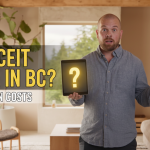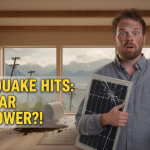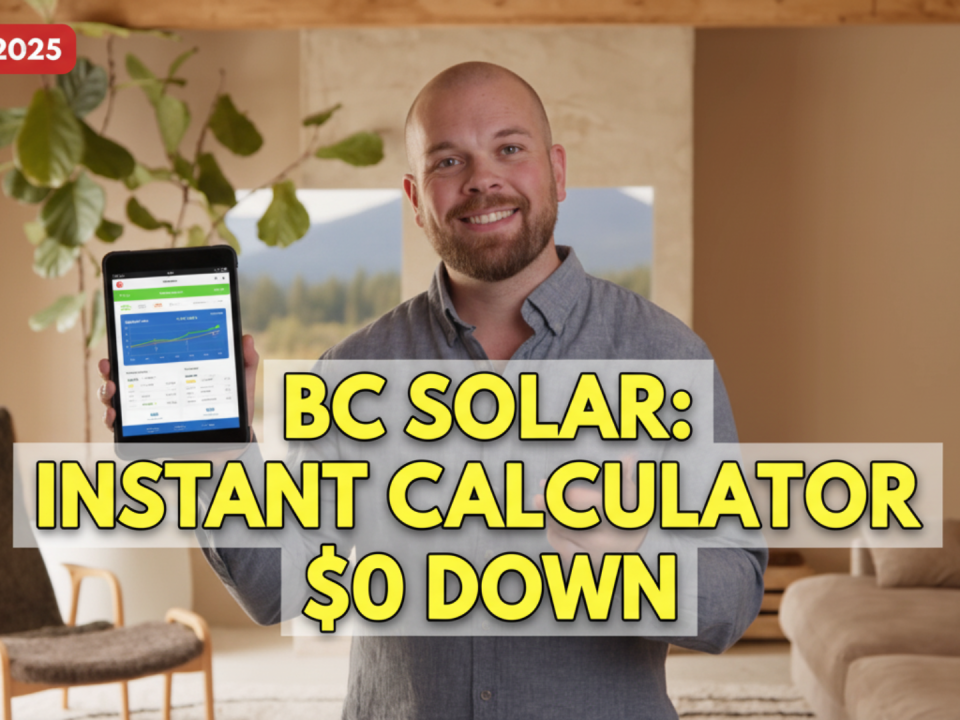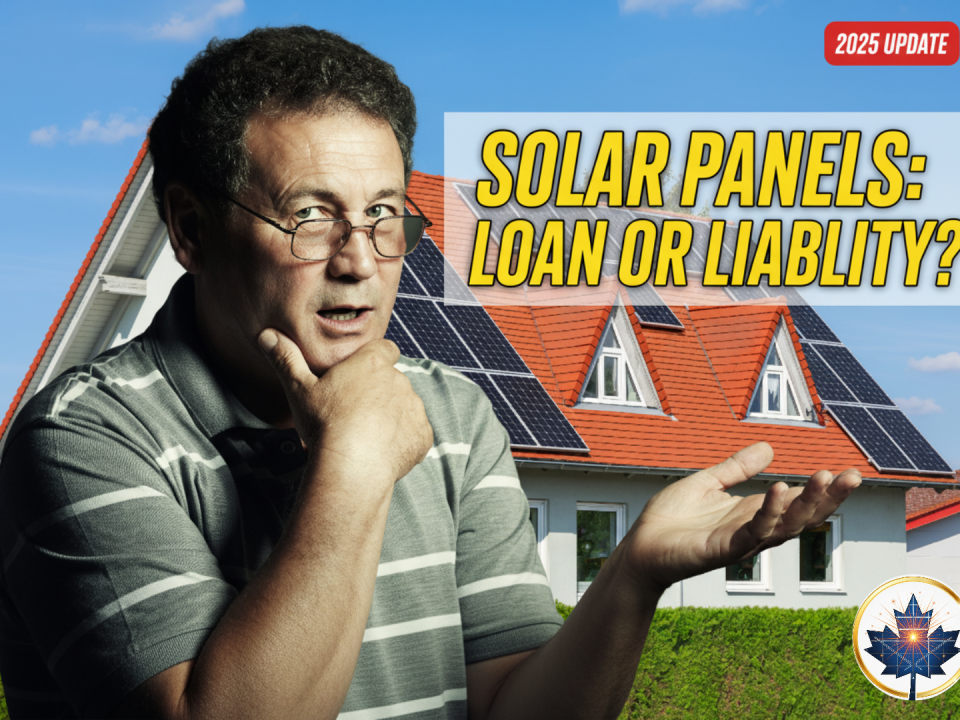
Is Financeit Solar Loan the Right Financing Option for BC?
November 5, 2025
The Big One Is Coming to BC. Will Solar Panels Keep Your Lights On?
November 12, 2025Going solar in Canada is a big decision. It’s a major home improvement project, probably one of the biggest you’ll tackle. As the owner of SolarEnergies.ca, I’ve spent 12 years in this field, and I’ve seen homeowners make great choices. I’ve also seen folks get locked into bad deals that cost them thousands.
The single most important step you can take is to compare multiple solar quotes. But as of 2024, the game has changed. It’s not just about the panels; it’s about the financing. This article is my straight-talk guide to reading those quotes, spotting the new red flags, and choosing an installer you can trust for the next 25 years.
Why is it Important to compare solar quotes before investing in solar panels?
When you get quotes, you’re not just shopping for a price. You’re shopping for a long-term partner. These panels will be on your roof for decades. You need to know what you’re buying, who is installing it, and how you are paying for it.
Understanding Long-Term savings with Solar
A solar quote isn’t just a bill; it’s a financial proposal. It includes estimates for your long-term savings and your payback period. Comparing quotes helps you see if the payback period is realistic.
Here’s the reality: these projections are estimates. An installer can make them look amazing by assuming your utility costs will jump 10% every year. A new red flag: A quote might look great, but if it’s based on a 10% interest loan, your payback period could double.
- Data Point: According to Natural Resources Canada, a typical payback period was between 5 and 12 years. But with high-interest loans, that period can stretch to 15 or 20 years, wiping out the benefit.
Avoiding Scams in the solar industry by Vetting solar company
The solar industry is growing fast, and sadly, that attracts high-pressure sales groups. The scams have just changed.
Common red flags I see:
- “Free Solar”: Still a classic. It’s a loan, not a gift. I’ve written about free solar panel ‘offers’ before.
- “0% Downpayment”: This is the new trick. They promote “0% down” but hide the 10%, 12%, or even 18% interest rate in the contract. This is predatory.
- Vague Equipment: The quote says “30 x Tier-1 Solar Panels.” This means nothing. You need the brand and the exact model number.
Vetting the company and its financing partner is your best defense and helps you separate common solar panel myths from facts.
Finding the best deal : Compare solar quotes from local installers
The “best deal” is rarely the cheapest quote. And now, the “best deal” is a combination of two things: a fair price on hardware and a low-interest loan.
Your goal is to find the best value. This is the sweet spot between a fair price (cost-per-watt) and a great financing plan (interest rate).
| Quote Metric | Installer A | Installer B | Installer C |
|---|---|---|---|
| System Size (kW) | 8.2 kW | 8.0 kW | 8.2 kW |
| Total Cost (before incentives) | $23,780 | $24,000 | $26,240 |
| **Cost per Watt ($/W)** | $2.90 | $3.00 | $3.20 |
| Financing Offer | 9.99% for 12 years | 12.99% for 15 years | 6.99% for 10 years |
| Panel Brand & Model | Qcells G10 410W | Longi LR5 400W | REC Alpha 410W |
| Workmanship Warranty | 5 Years | 2 Years | 10 Years |
This is the new reality. Installer A has the best price per watt, but Installer C has a (slightly) better loan. All of these loan offers are expensive. This is why you must shop around.
What factors should homeowner consider when reviewing a solar quote?
Okay, you have three quotes on your table. Let’s tear them apart, starting with the new #1 problem.
Evaluating the pricing Structure and financing options
Let’s be blunt. The Canada Greener Homes Loan is closed. That amazing 10-year, 0% interest loan that powered the whole industry is gone for new applicants.
This has created a massive problem. Many companies are now pushing terrible, high-interest financing. We are seeing rates from 6% to 18%. An 18% loan on a $25,000 solar system is not an investment; it’s a financial trap. It can kill your ROI and lock you into a bad deal for over a decade.
This is where we come in.
I’ve spent months looking for a solution. I’m happy to say that I am working with a company that is still able to offer 0% financing, with 0% down, for 15 years.
This is why I’m asking you, as you compare quotes, to please give us a chance. Before you sign any contract or financing agreement, let our team review your project. We will do our absolute best to get you a better deal. A low interest rate is now more important than the cost per watt.
What to look at:
- **Cost per Watt ($/W):** This is still the great equalizer for hardware. Calculation:
Total System Cost / Total System Wattage = Cost per Watt(e.g.,$24,000 / 8,000 watts = $3.00/watt\) A fair price is $2.50 – $3.50/watt. This cost can vary by city, from the cost for solar in Vancouver to the price for solar in Edmonton. - The Loan (APR): This is the new equalizer for financing. Ask for the “Total Cost of Borrowing.” A $25,000 system at 10% interest over 12 years will cost you over $41,000. That’s $16,000 in interest payments. A 0% loan makes the cost $25,000. It’s a massive difference.
Understanding solar panel Efficiency: watt and model number Details
The quote must list the panel brand and model. For example: Qcells Q.PEAK DUO BLK ML-G10+ 410W.
With this, you can look up the spec sheet.
- Efficiency: (e.g., 20.9%) Higher is better, especially for small roofs.
- Degradation Rate: How much power it loses each year. Look for 0.5% or less.
Tip for Homeowners: Don’t get too obsessed with finding the most efficient panel. The difference between a 21% efficient panel and a 22% efficient panel is tiny. It’s far more important to have a quality brand installed by a great crew with a 0% financing plan. If you want to compare the top brands, I’ve put together a guide on the best solar panels available in Canada.
Checking warranty information : Product warranty and installer workmanship
This is critical. A warranty is useless if the company disappears. There are three warranties to check:
- Panel Product Warranty (12-25 years): This covers the panel itself against defects.
- Panel Performance Warranty (25-30 years): This guarantees the panel will still produce a certain amount of power in the future (e.g., 85% of its original rating at year 25). This is a big part of what happens to panels after 25 years.
- Installer Workmanship Warranty (1-10 years): This is the installer’s own warranty. It covers their work—the racking, the wiring, and most importantly, roof leaks. A 1-year warranty is a red flag. A 5- or 10-year warranty shows they stand by their work.
How do solar incentives and tax credit impact the final cost of solar panels?
Incentives are what make the numbers work in Canada.
Understanding Available Government incentive Programs
The big one was the Canada Greener Homes Loan, which is now closed to new applicants. (I’ve covered what to do after the Greener Homes Grant ended and how to finance your system now).
With the federal loan gone, provincial and municipal incentives are more important than ever.
- Nova Scotia, PEI: Still have excellent rebate programs (NS rebates here, PEI info here).
- British Columbia, Alberta, Ontario: You are relying mostly on net metering and local programs. (BC’s rebates are mostly municipal). Check the guides for BC, Alberta, and Ontario.
- Quebec: Has its own Rénoclimat program, which I detail in the Quebec solar guide.
Calculating the Impact of tax credit on upfront Costs
This is a point of confusion. Unlike the USA, Canada does not have a federal solar tax credit for your personal home. Your savings come from rebates (if available) and securing a low-interest loan.
Net Metering and Potential utility Bill Reduction
Net metering is the system that gives you credit for the extra power you send to the grid. When your panels produce more than you’re using, your meter spins backward.
- Benefit: This is how you “save” power from a sunny July day to use on a cloudy November day. (The rules can be specific, like how you sell power back in Nova Scotia).
- Pain Point: Every province and utility has different rules. BC Hydro, for example, gives you a 1:1 credit, but they “true-up” your account once a year.
Your quote’s savings projection must be based on your specific utility’s net metering rules.
What are the key differences between various solar panel brands and technologies?
Comparing solar panel brand Performance and Durability
Most homeowners are quoted “Tier 1” panels. This is not an official quality ranking. It’s a list from BloombergNEF that ranks manufacturers by their financial stability. It’s a good starting point, but not a substitute for reading the panel’s spec sheet.
Understanding Monocrystalline vs. Polycrystalline solar panel
This is simpler than it sounds.
- Monocrystalline (Mono): Made from a single silicon crystal. They look black. They are more efficient and perform slightly better in high heat.
- Polycrystalline (Poly): Made from multiple silicon fragments. They look blue. They are less efficient and cheaper.
Almost every residential installer in Canada uses monocrystalline panels now. The price gap has closed, and the higher efficiency means you need fewer panels on your roof.
Considering battery Storage Solutions for Increased Independence
Batteries (like the Tesla Powerwall or Enphase Encharge) let you store your solar power to use at night or during a blackout.
- Benefit: Power security. When the grid goes down, your lights stay on.
- Pain Point: They are expensive. A single battery can add **$10,000 to $15,000** to your project. And without the 0% federal loan, financing a $15,000 battery at 10% interest makes the financial case almost impossible.
- The Hard Truth: In most of Canada, batteries do not have a financial ROI. You are paying for the peace of mind of blackout protection.
How to find reputable solar installer and check their installer qualifications?
Checking for Licenses and Certifications for solar installer
You can’t just have a roofing company install solar panels. It’s an electrical project.
- Electricians: The team must be led by a licensed electrician. Ask for their license number.
- Certifications: Look for installers certified by the Canadian Renewable Energy Association (CanREA). This shows they are up-to-date on best practices and standards.
- Insurance: They must have full liability insurance and WCB/WSIB coverage.
Reading Online negative reviews and Checking References
Don’t just look at the 5-star reviews.
Tip: Read the 1-star and 3-star reviews. (I’ve used this method to rank the best solar companies in Nova Scotia, and it’s very revealing). Are the complaints about delays in “Permission to Operate” (PTO) from the utility? (Common). Or are they about roof leaks and ghosting the customer? (Major red flag).
Inquire if the installer subcontract the installation process
This is my number one question for any solar company. “Do you use your own installation crews, or do you subcontract?”
I’ve seen this go badly. A slick sales company signs the deal, then they subcontract the install to the cheapest crew they can find. When there’s a problem, the sales company blames the installer, and the installer is nowhere to be found. You want one company, one contract, one point of accountability.
What questions should I ask a solar installer before signing a contract?
Here is your checklist. I have a full list of questions to ask solar companies, but here are the non-negotiable ones:
- What is the exact interest rate (APR) and total financing cost of my loan? (This is the new #1 question).
- Are you using your own crews or subcontractors?
- What is your electrician’s license number?
- What is your full workmanship warranty (years, and what does it cover)?
- If I have a problem, who is my single point of contact?
- What assumptions did you use for my savings projection? (Ask to see the math on utility rate increases).
- What is the full timeline, from signing the contract to getting Permission to Operate (PTO) from my utility?
An installer who can answer these questions clearly and confidently is one you want to work with.
A Warning About Solar Brokers vs. Free Advisory Services
You will see ads for “solar marketplaces” or “brokers” that promise to get you multiple quotes for free. Be careful. Many of these services work on commission.
Instead of a broker, I strongly recommend looking for free, independent advisory services. These are often non-profit organizations or programs whose entire job is to help you understand the process. They don’t sell anything.
What to Look For in an Advisory Service
A good, impartial advisor can be your “solar translator.” Look for groups that offer:
- Quote & Document Review: This is the most valuable part. You get an expert to look at the 3-5 quotes you gathered and explain the pros and cons of each, with no financial stake in your decision.
- Rebate Application Guidance: They can help you navigate the paperwork for any remaining provincial or municipal rebates.
- EnerGuide Evaluation Review: They can help you understand your home’s energy report and how solar fits into your bigger efficiency picture.
For example, there are programs like the Home Energy Navigator in B.C. that provide this exact kind of ongoing, impartial advice.
Ultimately, choosing an installer is a 25-year commitment. Take your time, read the fine print, and ask the hard questions. The right system from the right installer is a fantastic investment in your home.
And before you sign any deal, let us review your quotes. We will do our best to get you a better deal, and that starts with finding you a financing plan that doesn’t wipe out your savings.



